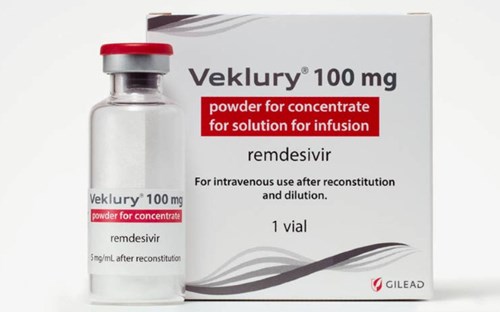On Monday, Children’s Health Defense released a video about The Remdesivir Papers, a whistleblower report that points to the use of remdesivir and more in the deaths of hundreds of service members and veterans during the COVID-19 pandemic.
CHD’s Michael Nevradakis, Ph.D., was joined in the video by Brad Miller, a former U.S. Army lieutenant colonel who previously served as an Army battalion commander. In October 2021, Miller was relieved of his battalion command within the 101st Airborne Division for refusing the COVID shot under the unlawful direction of Defense Secretary Lloyd Austin.
 American Family News spoke to Dr. Nevradakis, who is the senior reporter for The Defender and one of the hosts for CHD.TV. Having experience writing about and studying the topic of remdesivir, Nevradakis admits he was “not surprised" to read the information revealed by The Remdesivir Papers, which was first published by The Gateway Pundit and subsequently shared with American Family News by the whistleblower. His work has at CHD has given him the opportunity to hear the stories of dozens of “victims of COVID-19 hospital protocols,” which did not differ from the use of the drug in the military.
American Family News spoke to Dr. Nevradakis, who is the senior reporter for The Defender and one of the hosts for CHD.TV. Having experience writing about and studying the topic of remdesivir, Nevradakis admits he was “not surprised" to read the information revealed by The Remdesivir Papers, which was first published by The Gateway Pundit and subsequently shared with American Family News by the whistleblower. His work has at CHD has given him the opportunity to hear the stories of dozens of “victims of COVID-19 hospital protocols,” which did not differ from the use of the drug in the military.
“[The Remdesivir Papers] are important because it helps confirm what a lot of victims have been coming forward and saying for a couple of years. But now we actually see that there's hard evidence of what each of them has been saying,” Nevradakis shares. “Individuals suffered adverse events – and many of these people died.”
He continues: “Even with irregularities taking place with regard to the clinical trials involving remdesivir, it seems that the National Institutes of Health and the Department of Defense were absolutely determined to get certain products into people's arms and into people's bodies.
"And it looks like there were some lucrative financial incentives involved in order to help make it happen,” he adds.
The products Nevradakis refers to include the COVID-19 jab and remdesivir.
Follow the money

Not only were hospitals interested in the products because of the financial incentive, but Gilead Sciences – the maker of remdesivir – increased its lobbying efforts in the years leading up to and during the COVID-19 pandemic. According to Nevradakis, “the money spent on lobbying, and the corresponding increase in their stock price, parallels the things seen with other drug manufacturers.”
While the ebb and flow of their stocks can be viewed at any time, organizations have been known to conceal the results of clinical trials and more. This was brought to light through The Remdesivir Papers, which documented information from a whistleblower that 64% of COVID service members and veterans who died between March 2020 and March 2024 were treated with remdesivir.
Multiple email inquiries regarding these deaths were sent to the military treatment facilities involved – and a FOIA request was filed with the U.S. Army Medical Research and Development Command (USAMRDC) on September 24. Three days later, a congressional inquiry from Rep. Clay Higgins (R-Louisiana) was sent to Defense Secretary Lloyd Austin, copying the U.S. Health and Human Services Secretary, the U.S. Food and Drug Administration Commissioner, USAMRDC Commanding General Maj. Gen. Paula C. Lodi and others.
FOIAs cause foot-dragging
Nevradakis understands the uphill battle that lies ahead to retrieve information that an organization does not want to be made public, pointing out that CHD has filed several Freedom of Information Act (FOIA) requests to various government agencies.
 “In almost all of those cases, the agencies would stonewall the requests,” he admits. “They often either come back with very bizarre reasons for not being able to fulfill a request, or they delay much longer than the response time that is prescribed by law.”
“In almost all of those cases, the agencies would stonewall the requests,” he admits. “They often either come back with very bizarre reasons for not being able to fulfill a request, or they delay much longer than the response time that is prescribed by law.”
That's “an intentional strategy," according to Nevradakis. "Because they know that by doing that, as they're trying to force you to expend financial resources to go to court to get the documents you need, in the meantime they're buying time as well.”
He recalls a previous FOIA request. “It took a couple of years to get documents, and CHD was forced to sue,” he states. And when those documents did arrive, rather than coming all at once, they were “piecemealed,” he laments. “[And] PDF files were not searchable and the ability to copy and paste text from them was impossible.
“[So] even when [organizations] finally have a court order to provide documents, they’ll do so in a way that makes it as difficult as possible to use them,” Nevradakis explains.







